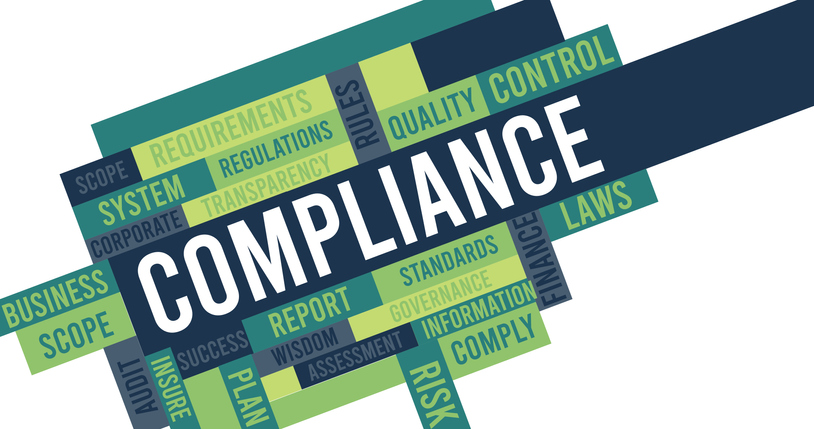A chief compliance officer (CCO) is a member of your firm’s team who can help protect your business from potential legal or regulatory issues. Registered investment advisors must have a CCO serving at the firm, but hiring an experienced one could make a huge difference and avoid potential penalties, fees or lawsuits that could cost your firm everything. Let’s take a closer look at the role of a CCO and why you should consider bringing an experienced one on.
Are you looking to expand the marketing of your financial advisor practice? Try SmartAsset AMP, a holistic client prospecting and marketing automation platform.
What Is a Chief Compliance Officer?
Registered investment advisors (RIA) are financial firms that advise or manage the assets of investors. And the U.S. Securities and Exchange Commission (SEC) requires each RIA “to designate a chief compliance officer to administer its compliance policies and procedures.” This means that the CCO “should be competent and knowledgeable regarding the Advisers Act and should be empowered with full responsibility and authority to develop and enforce appropriate policies and procedures for the firm.”
According to the SEC, the CCO “should have a position of sufficient seniority and authority within the organization to compel others to adhere to the compliance policies and procedures.” So this position can serve both as an enforcer of regulatory compliance and a protector of the firm’s reputation, and play an important role in risk management.

Client Acquisition Simplified: For RIAs
- Ideal for RIAs looking to scale.
- Validated referrals to help build your pipeline efficiently.
- Save time + optimize your close rate with high-touch, pre-built campaigns.

CFP®, CEO
Joe Anderson
Pure Financial Advisors
We have seen a remarkable return on investment and comparatively low client acquisition costs even as we’ve multiplied our spend over the years.
Pure Financial Advisors reports $1B in new AUM from SmartAsset investor referrals.
Pros and Cons of Hiring a CCO
A CCO’s expertise can help a firm comply with regulations and anticipate potential changes or manage audit processes effectively. Let’s take a look at the pros and cons of hiring:
Pros of Hiring a CCO
Hiring a CCO brings several significant advantages. These can include:
- Improved regulatory compliance
- Enhanced firm reputation
- Increased investor confidence
- Improved relationships with regulators
Additionally, the presence of a dedicated compliance professional can foster a culture of compliance within the firm, empowering employees to understand and adhere to regulatory requirements. This commitment to ethical practices can also build trust with clients who value transparency and integrity, and strengthen their relationship with the firm in the long run.
Cons of Hiring a CCO

Despite these advantages, there can be potential disadvantages or challenges in hiring a CCO. The high costs associated with hiring a CCO and providing the necessary supporting resources can be a significant challenge.
The average cost of hiring a CCO can range from $100,000 to $200,000 annually, or more for larger firms. These costs may encompass the CCO’s salary and additional costs for supporting resources, such as compliance software or additional staff, which firms need to factor into their financial planning.
Internal resistance can also pose a challenge. Changes in compliance procedures can disrupt established business processes, leading to push back from some employees. However, this resistance can be mitigated by carefully communicating the benefits of these changes and fostering a culture of compliance within the firm.
Build a Better RIA
Drive growth with automation, not headcount using the all-in-one advisor marketing platform.

When It’s Time to Hire a CCO
The decision to hire a CCO should be made after considering various factors. First and foremost, if you plan on registering your firm as an investment advisor with the SEC, you will be required to hire a CCO.
Generally, a CCO can help navigate through different markets and their expertise can help the firm adhere to regulations.
Additionally, if a firm faces potential penalties due to non-compliance, a CCO can help work through these issues and prevent future instances.
Strategically, your firm may want to hire a CCO who aligns with different factors, including the size of the firm, the level of compliance management and the firm’s expansion into different markets, among others.
Incorporating more data or statistics regarding the impact of a CCO on a firm’s compliance record or reputation could further enhance the understanding of the role and promote a greater culture of compliance among workers.
What to Look for in a Chief Compliance Officer
A successful CCO will likely embody a unique combination of traits, which can be categorized into:
- Technical skills: A CCO should possess a strong knowledge of regulatory compliance, critical thinking ability and analytical skills to help them detect potential areas of non-compliance. Adaptability is also important, allowing them to keep up changing regulations.
- Interpersonal skills: These skills include excellent leadership skills and communication skills, enabling them to effectively explain complex regulations.
- Experience: The experience and credentials of a CCO should have relevant to their specialization in the financial industry. These can include knowledge of RIA operations and regulations, and a track record of successful compliance management.
Ultimately, you need to find someone that doesn’t just meet the requirement but is a good fit for you and the rest of your team.
Bottom Line

Compliance can help ensure that the firm operates within regulatory boundaries and maintains a high level of trust with its clients. At the helm of this requirement, you’ll find a CCO who is tasked with adhering strictly to regulatory standards, effectively managing risk and fostering a culture of compliance.
Tips for Growing Your Firm
- SmartAsset AMP (Advisor Marketing Platform) is a holistic marketing service financial advisors can use for client lead generation and automated marketing. Sign up for a free demo to explore how SmartAsset AMP can help you expand your practice’s marketing operation. Get started today.
- It’s also important to increase your visibility online. If your potential clients can’t find you then you don’t exist to them. Most people start their journey for financial help online. Consider following some of the best digital marketing strategies to help connect with those prospects.
Photo credit: ©iStock.com/Nastassia Samal, ©iStock.com/Canan turan, ©iStock.com/DNY59
